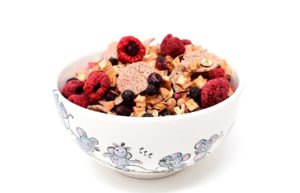Childhood obesity is on the rise. According to a recent National Health and Nutrition Examination (NHANES) survey, almost one-third of American children can be described as overweight-an increase of nearly 20 percent from a study a decade ago. Fortunately, there’s a lot parents can do to keep their children from becoming overweight.
While many people associate sweetness with table sugar, called sucrose, this is just one type of sugar that provides this taste. There is also sugar in fruits, called fructose, and many foods contain added sugars such as corn syrup, honey and high fructose corn syrup. All sugars are carbohydrates containing four calories per gram and after digestion they travel through the bloodstream where they are used as fuel for the body.
Sugar substitutes, also called low-calorie sweeteners, supply flavor but add little or no calories.
Limiting the intake of sugary foods, which often contribute few nutrients to the diet, can be a positive step in decreasing the number of American children who are overweight. Many health experts suggest using a sugar substitute like aspartame to replace the sweetness in some of your child’s favorite foods. Before being approved by the FDA, sweeteners undergo extensive safety testing to be sure they are safe for consumption by children and pregnant women. According to the American Dietetic Association, children can safely consume aspartame as part of a diet consistent with the Food Guide Pyramid.
Snacks are an essential part of any child’s diet, providing energy and nutrients.
“The challenge is getting children to snack less on high-sugar foods and more on nutrient-dense snacks from the Food Guide Pyramid,” says Keith Ayoob, a registered dietitian from the American Dietetic Association and a pediatric nutrition expert at Albert Einstein College of Medicine in New York City. He recommends “sweet” snacking on low-fat, sugar-free yogurt, fresh fruit, raisins and other dried fruit, 100- percent fruit snacks, sugar-free flavored gelatin, fruit juice pops made with reduced sugar juice and sugar-free flavored water.
Nutrition experts agree sweet foods can be part of a healthful diet. The key is moderation-to ensure that sweet foods do not crowd out more nutrient-dense foods. Sugar substitutes have the potential to serve as effective weight management tools when used together with physical activity and healthy food choices.
• Althea Zanecosky is a registered dietician, national spokesperson for the American Dietetic Association and a mother of two daughters.
Foods sweetened with sugar substitutes provide healthy alternatives for children.






